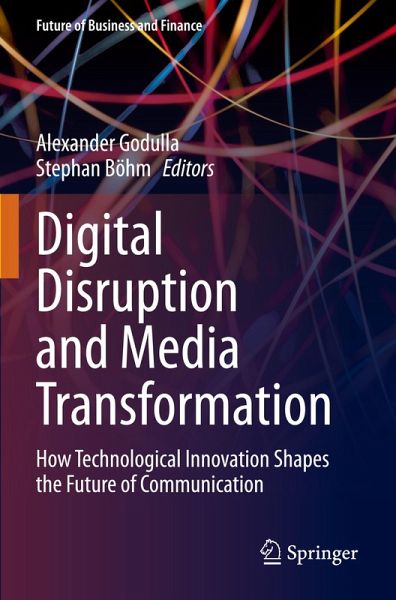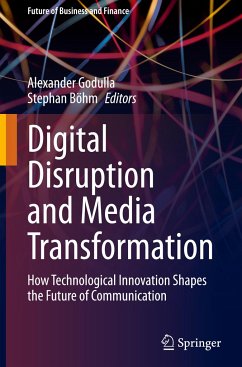
Digital Disruption and Media Transformation
How Technological Innovation Shapes the Future of Communication
Herausgegeben: Godulla, Alexander; Böhm, Stephan
Versandkostenfrei!
Versandfertig in 6-10 Tagen
53,99 €
inkl. MwSt.

PAYBACK Punkte
27 °P sammeln!
This book presents a comprehensive compilation of the latest research into digital disruption in the media industry. The perspectives are differentiated into innovation triggers in the media industry stemming from the economy, society and technology. In addition, the book highlights selected case studies exploring new media actors and usage, innovation and disruption in media organizations, emerging media platforms and channels, as well as innovative media topics and events. The book is intended for researchers in communication sciences and media research, as well as media practitioners who wa...
This book presents a comprehensive compilation of the latest research into digital disruption in the media industry. The perspectives are differentiated into innovation triggers in the media industry stemming from the economy, society and technology. In addition, the book highlights selected case studies exploring new media actors and usage, innovation and disruption in media organizations, emerging media platforms and channels, as well as innovative media topics and events. The book is intended for researchers in communication sciences and media research, as well as media practitioners who want to understand the causes and effects of digital transformation in the media industry.












